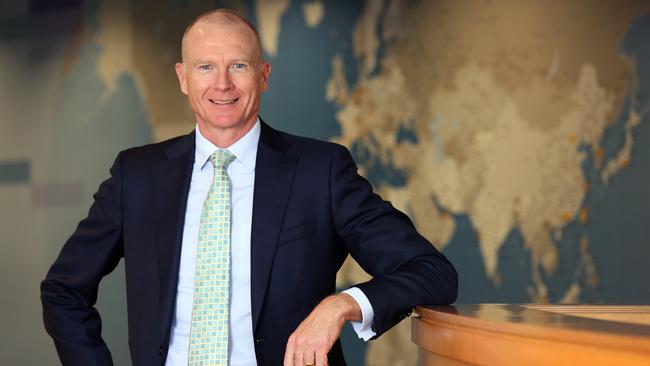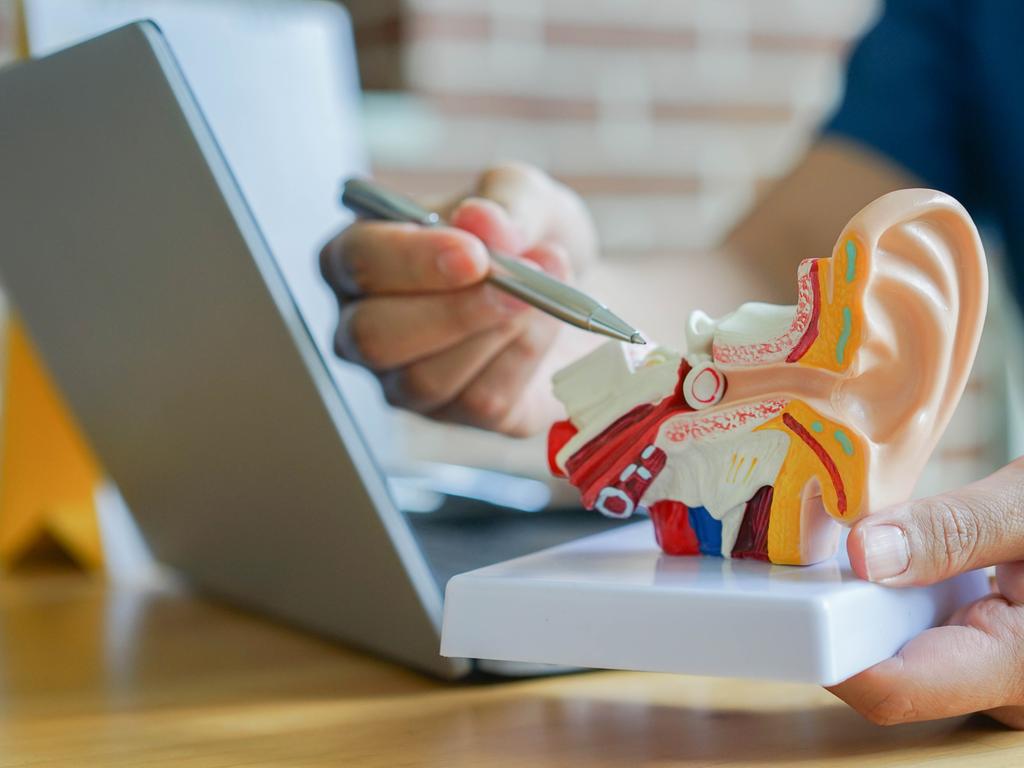Cochlear’s profit is booming but one expert says there is room to grow
Cochlear has delivered a bumper first half profit, but at least one analyst says the company could be doing even better than the numbers suggest.

The global untapped market for Cochlear’s hearing assistance devices dwarfs the progress the company has made to date, chief executive Dig Howitt says, as the company delivered a record dividend for the first half underpinned by surging profits.
Cochlear on Monday reported first half sales revenue of $1.11bn, up 25 per cent, while its underlying net profit was up 35 per cent to $191.8m.
The company will pay a record $2 per share first half dividend, 70 per cent franked, up 29 per cent, on April 15.
And while the numbers are impressive, at least one analyst says they might not reflect just how well the business is doing.
Cochlear had flagged its strong results in a full year earnings upgrade released earlier this month, with the cochlear implant maker saying on February 8 it expected underlying net profit for the full year to be in the range of $385m-$400m, up 26-31 per cent.
“Cochlear implant units increased 14 per cent driven by the consolidation of recent market share gains and strong market growth across both developed and emerging markets, as well as all age segments,’’ the company said on Monday.
“Services revenue increased 35 per cent (29 per cent in constant currency terms) driven by strong upgrade demand for the recently released Cochlear Nucleus 8 Sound Processor.’’
While the result was strong, analysts at Wilsons said upgrades were likely, with the numbers potentially not reflecting the true strength of the business.
“Cochlear may even be doing better (tactically and strategically) than the immediate numbers suggest,’’ Wilson said in a note to clients.
“We sense that most of their outperformance still resides within traditional, ‘core’ cochlear implant settings; but that another dimension is developing in how indication expansion is being serviced and monetised.
“Forecasts, valuation and recommendation under review. Upgrades likely.’’
Wilson has an “overweight” rating on the stock, which closed at $327.82, down 2 per cent on Monday, but not far off its 12 month highs and well up on the circa $222 it was trading at a year ago.
RBC Capital Markets said on Monday the results were “broadly in line with our expectations’’ given that the company had recently flagged its strong results.
Cochlear told the ASX that the increase in sales of cochlear implant units, up 14 per cent to 24,193, was driven by strong growth across both developed and emerging markets.
“Developed market units grew around 15 per cent with strong growth across all markets driven by the consolidation of market share gains following the launch of the Nucleus® 8 Sound Processor as well as strong market growth,’’ the company said.
“Implant growth has been strong across all segments - children, adults and seniors.
“We continue to see an improving trend in adult referral rates in key markets, in part driven by initiatives to improve awareness and access for adult cochlear implant candidates.
“Emerging market units grew around 10 per cent with strong growth across a broad range of countries including China, India, Central Europe and the Middle East.’’
Cochlear implant revenue was $648.5m, up 26 per cent, services revenue was $348.9m, up 35 per cent, while acoustics revenue was up 4 per cent to $116m.
On the outlook, the company said it believed there remained, “a significant, unmet and addressable clinical need for cochlear and acoustic implants that is expected to continue to underpin the long-term sustainable growth of the business’’.
“Our clear growth opportunity and strategy, combined with a strong balance sheet, mean we are well placed to create value for our stakeholders now, and over the long term.
“Cochlear implant trading conditions continue to be strong across most markets, with an improving trend in adult referral rates in many developed countries.’’
Mr Howitt, speaking to The Australian on Monday, said there was still a job to do educating both clinicians and the general public about the negative impacts of hearing loss across all demographics, and the potential benefits of cochlear implants.
The company estimates its addressable market at about 60 million people globally, and even in the developed countries where Cochlear has been active for some time, the unmet need is large.
“We have a long, long way to go. I think in developed markets, fewer than 5 per cent of people who would benefit from a cochlear implant, currently have one,’’ Mr Howitt said.
“And that just shows how limited the awareness is and how hard the referral process is. So that means we’ve got a lot of work in front of us to change that, particularly as the number of older people in society is increasing.
“And that means that we have a very long run growth trajectory in front of us provided we execute on our strategy well.’’
Mr Howitt said hearing loss was associated with cognitive decline in older adults, which could be addressed with appropriate treatment.
The company continues to engage with regulators, Mr Howitt said, which had translated into wins recently including the US lowering the age of cochlear implantation from 12 to nine months, while in Japan, the UK and Belgium the reimbursement criteria had been widened.
The company has suspended its share buyback, with chief financial officer Stuart Sayers saying Cochlear was earning 5 per cent on its cash, and would look to reinstate the buyback when rates drop.
Cochlear had $485.2m in cash at the end of the half.







To join the conversation, please log in. Don't have an account? Register
Join the conversation, you are commenting as Logout